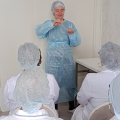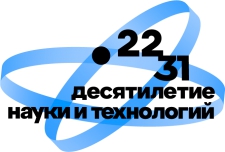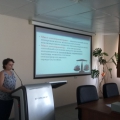The second interlaboratory seminar of young scientists took place
|
31 05.2019
On May 30, an interlaboratory seminar of young scientists "Using MALDI TOF mass spectrometry to solve current problems of bacteriological laboratories" was held at he Blokhina Scientific Research Institute of Epidemiology and Microbiology of Nizhny Novgorod.
|
During the seminar, a report was presented by senior researcher of the Laboratory of human microbiome and its means of correction, Ph.D. Tochilina Anna Georgievna, dedicated to the MALDI TOF method of mass spectrometry. The report presented a brief overview of the time-of-flight mass spectrometer device, in particular, its detecting system, the principle of operation of the instrument, considered the features of sample preparation depending on the material under study.
During the practical part of the workshop, participants were able to analyze cases from the practice of using mass spectrometry to identify microorganisms.
The workshop material provoked a lively discussion and was noted.
In total, there were 19 employees of the institute, 14 of them were young scientists.
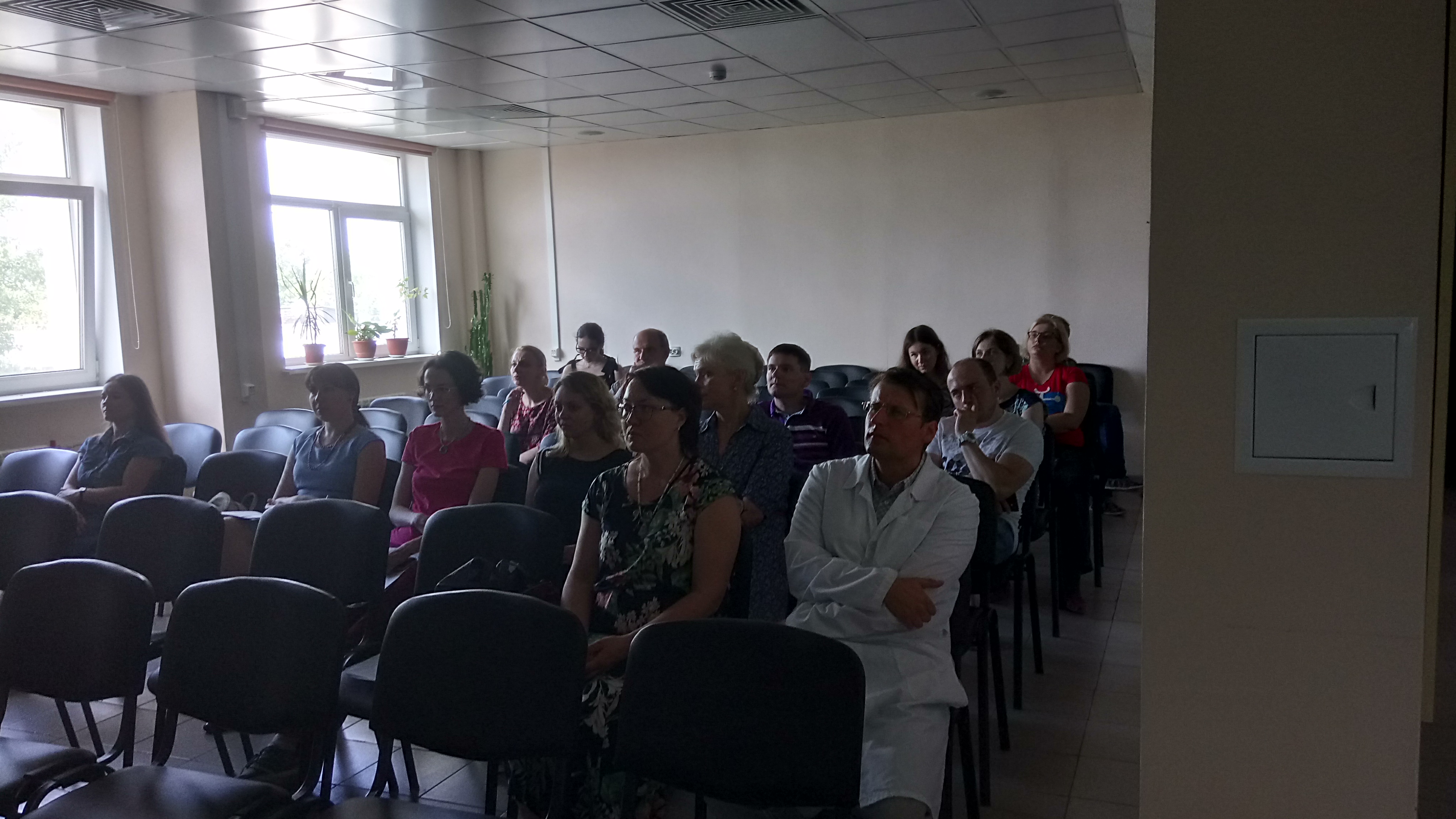 |
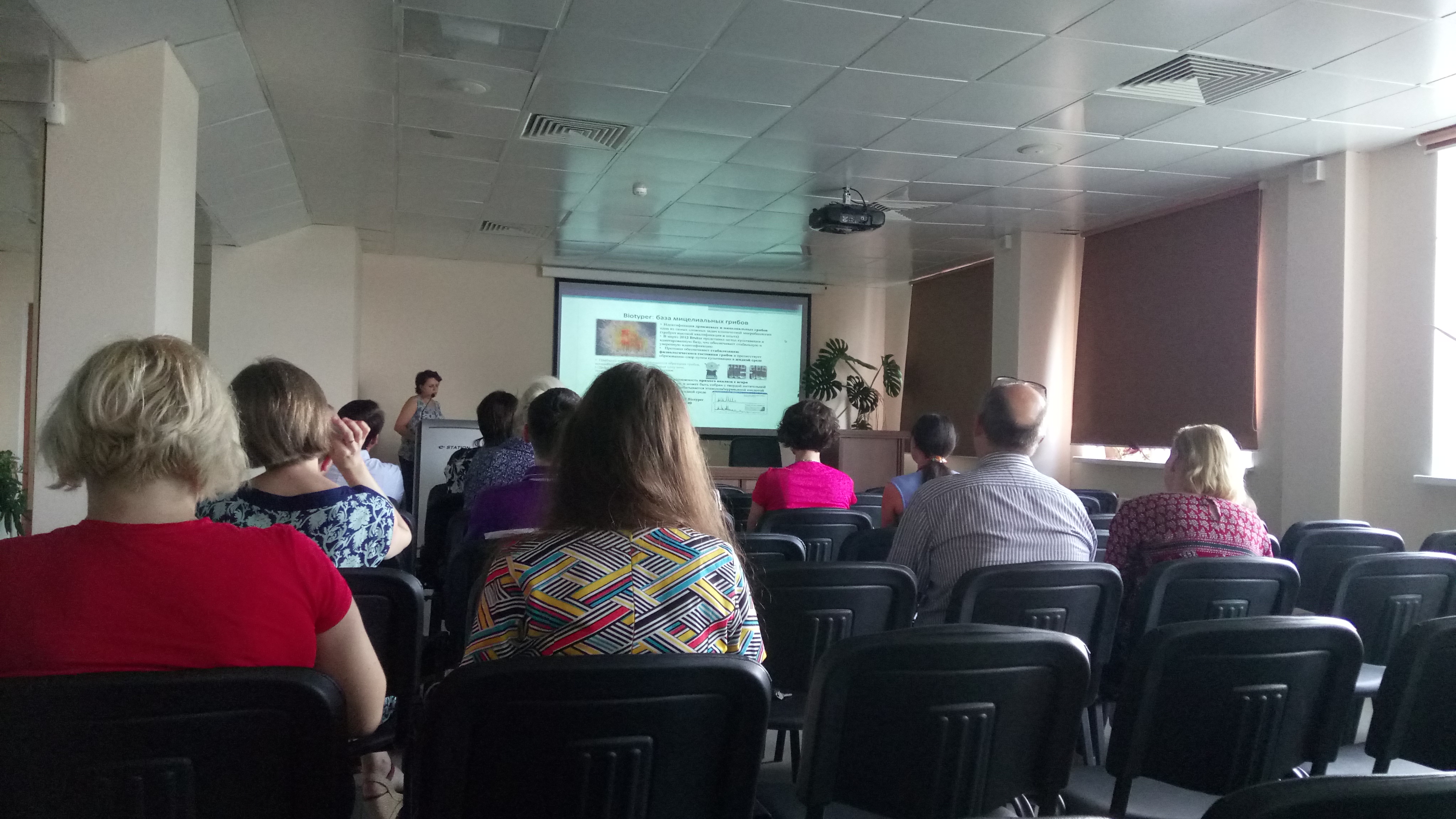 |
